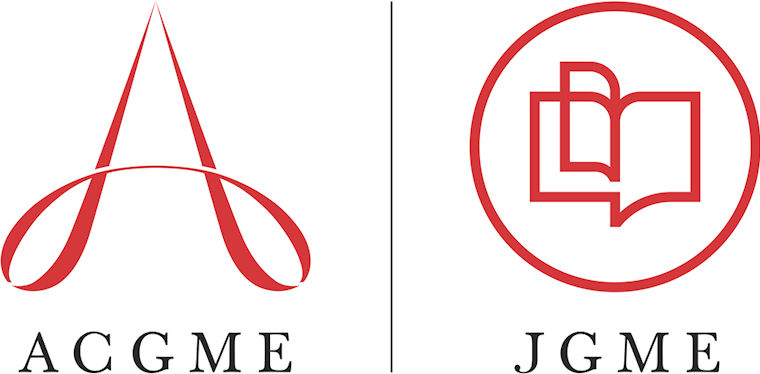The Journal of Graduate Medical Education (JGME) is published by the ACGME as an editorially independent, peer-reviewed publication. But what exactly does editorial independence mean in terms of their relationship, and why is it so important to both JGME and the ACGME? Below are some questions and answers that hopefully shed some light.
Is the Journal of Graduate Medical Education part of the ACGME?
In many ways, yes. JGME is funded and administratively supported by the ACGME. It has an in-house staff, made up of ACGME employees, that processes submissions, copyedits manuscripts, and works to get accepted articles in shape for publication. JGME website maintenance, social media communication, and a podcast are also driven and supported by these staff members who are part of the ACGME’s Department of Communications and Public Policy. As such, JGME staff members have enjoyed a great deal of collaboration with their Communications colleagues regarding marketing and other ways to increase readership. A number of decisions, such as going open access, which allows readers to explore JGME content without a paid subscription, were made possible through ACGME support and in concert with the ACGME mission. Such financial decisions are made through the Journal Oversight Committee of the ACGME Board of Directors, which also has the power to renew the contracts of the Editor-in-Chief, Executive Editor, and Deputy Editors.
So what does it mean that “JGME is editorially independent”?
The simple answer is that, once an author submits an article for review and in-house staff members have screened to ensure its compliance with basic guidelines, the decision of whether to publish rests with JGME’s Editor-in-Chief, Executive Editor, and an independent Editorial Board, not with the ACGME.
These decisions are informed in large part by recommendations from peer reviewers across the graduate medical education (GME) community, who volunteer their time and expertise to provide independent and unbiased reviews to the editors. With an average of more than 100 submissions every month, JGME editors and reviewers apply rigorous standards of scholarship in deciding which articles go out for review, and ultimately, which will be published in each issue.
Does that mean JGME articles can offer criticism of the ACGME?
Yes. They can and they have. JGME has, on occasion, published articles that have questioned or challenged ACGME policies and program requirements. When it comes to publishing research and opinion, the ACGME does not influence those decisions.
The ACGME’s goal in launching the journal was to have a venue for gathering and disseminating high-quality research and ideas to the GME community. As such, longstanding assumptions have often been tested by new information, different ways of looking at an issue, and a diversity of experience from programs around the country and the world. These challenges can often result in positive changes. The ACGME believes in and welcomes this free exchange of ideas and research, which is why it first supported the creation of an independent journal 12 years ago.
What about “ACGME News and Views”?
There is one exception. JGME’s ACGME News and Views section features data reports, updates, and perspectives from the ACGME and its committees. The decision to publish in News and Views is made by the ACGME. Articles in this section are not peer reviewed and are not listed in the PubMed database. There is an Editor’s Note in every issue making clear that this section is unique in those ways.
Why is it important to know about JGME’s editorial independence?
Because of the close relationship between JGME and the ACGME, misunderstandings arise. For example, an editorial or opinion article published in the journal could be mistakenly read as official ACGME policy. This is why the JGME website includes a disclaimer that statements or opinions expressed in the journal reflect the views of the author(s) and do not necessarily reflect the official policy of the ACGME unless it is clearly specified.
Potential authors could also hesitate to submit research and ideas with conclusions that differ from those of the ACGME. It is important that they know their work will be reviewed independently and objectively.
Finally, as Editor-in-Chief Dr. Gail Sullivan says, “There is also a status issue. Journal independence—with peer review—is a signal that a journal has higher standards of quality. This separates it from the hordes of for-profit and organization mouthpiece journals that are usually held in low regard, in terms of credibility. When the ACGME decided to fund an editorially independent journal, they chose to disseminate a journal that would have higher credibility in the medical education world. A very altruistic decision!”
With independent peer-reviewed scholarship playing a vital role in the evidence-based clinical learning the ACGME strives to support, it is the editorial independence of a journal like JGME that allows that to truly happen.
Guest blogger Kevin Gladish is an editorial associate on the staff of the Journal of Graduate Medical Education. He’s been at the ACGME since 2016, and is also a performer, writer, and storyteller.

